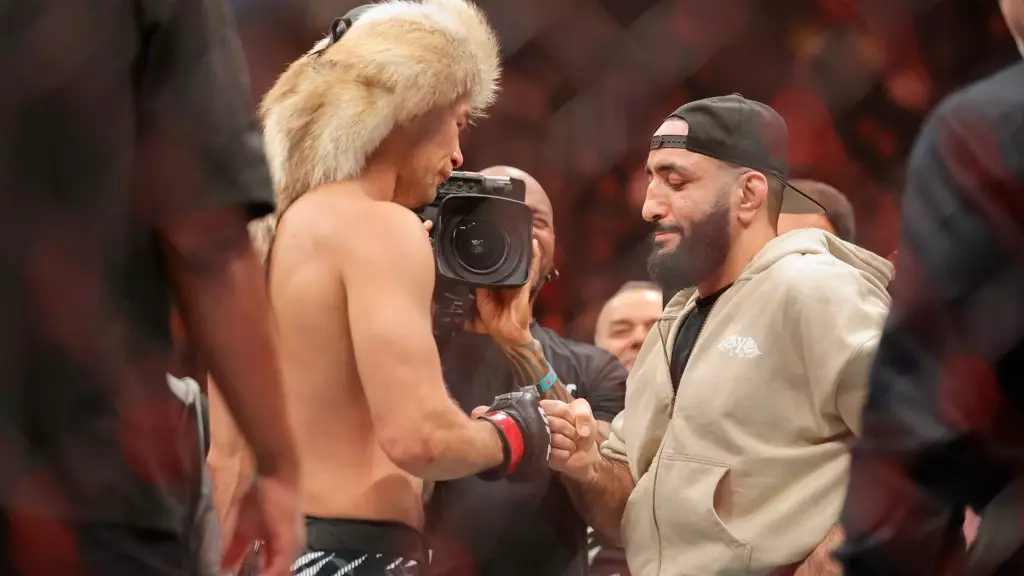At UFC 310, a noteworthy incident unfolded during the post-fight faceoff between welterweight champion Belal Muhammad and unbeaten contender Shavkat Rakhmonov. The faceoff followed Rakhmonov’s impressive victory over Ian Machado Garry, but it didn’t resonate well with all observers, particularly MMA veteran Daniel Cormier. Cormier expressed his dissatisfaction regarding the faceoff, highlighting specific issues that detracted from the event’s promotional value. His critique offers an insightful angle on how significant moments in professional fighting can sometimes fall flat, affecting audience engagement and fighter dynamics.
A significant point raised by Cormier was the language barrier that stood between Muhammad and Rakhmonov. While faceoffs are typically charged moments designed to build hype for future matchups, the inability for both fighters to effectively communicate in a shared language hindered the intensity of their exchange. Cormier expressed his discomfort with faceoffs that require a translator, arguing that such circumstances can dilute the emotional weight of the moment. He pointedly referenced more successful faceoffs, such as those involving Alexander Volkanovski and Sean O’Malley, where clear communication contributed to a palpable sense of rivalry and tension. In contrast, the Muhammad-Rakhmonov faceoff lacked the same energy, leading to a diminished impact on potential viewers excited about the prospect of their fight.
Adding another layer of complexity to the event, security issues prevented Muhammad from entering the cage promptly. Commentator Joe Rogan’s light-hearted quip regarding the security team’s unawareness of Muhammad’s champion status may have seemed playful but inadvertently distracted from the seriousness of the faceoff. Cormier highlighted how these logistical mess-ups undermine the professionalism associated with elite boxing promotions. Instead of building anticipation, such moments can create confusion and lessen the excitement surrounding the fight.
Cormier’s critique underscored the broader implications of promotional strategy in mixed martial arts. A faceoff serves multiple purposes: it galvanizes fan interest, sets the stage for rivalries, and catalyzes ticket sales. When executed poorly—whether due to communication barriers or logistical blunders—the potential for these moments to enhance a fight’s narrative is squandered. Cormier likened the disjointed faceoff to missed opportunities in the fight promotion landscape, suggesting that a well-executed interaction can leave a lasting impression on fans.
UFC 310’s post-fight faceoff between Muhammad and Rakhmonov turned out to be an awkward and ultimately counterproductive affair, as critiqued by Cormier. Language barriers and security mishaps overshadowed what could have been a pivotal promotional moment. With Muhammad’s recent recovery from injury and Rakhmonov’s undefeated record, the buildup to their eventual fight remains critical. Both fighters have the potential to draw in significant fan interest, but careful attention must be paid to the manner in which they’re introduced—ensuring that the promotional architecture supports rather than stifles their burgeoning rivalry.

